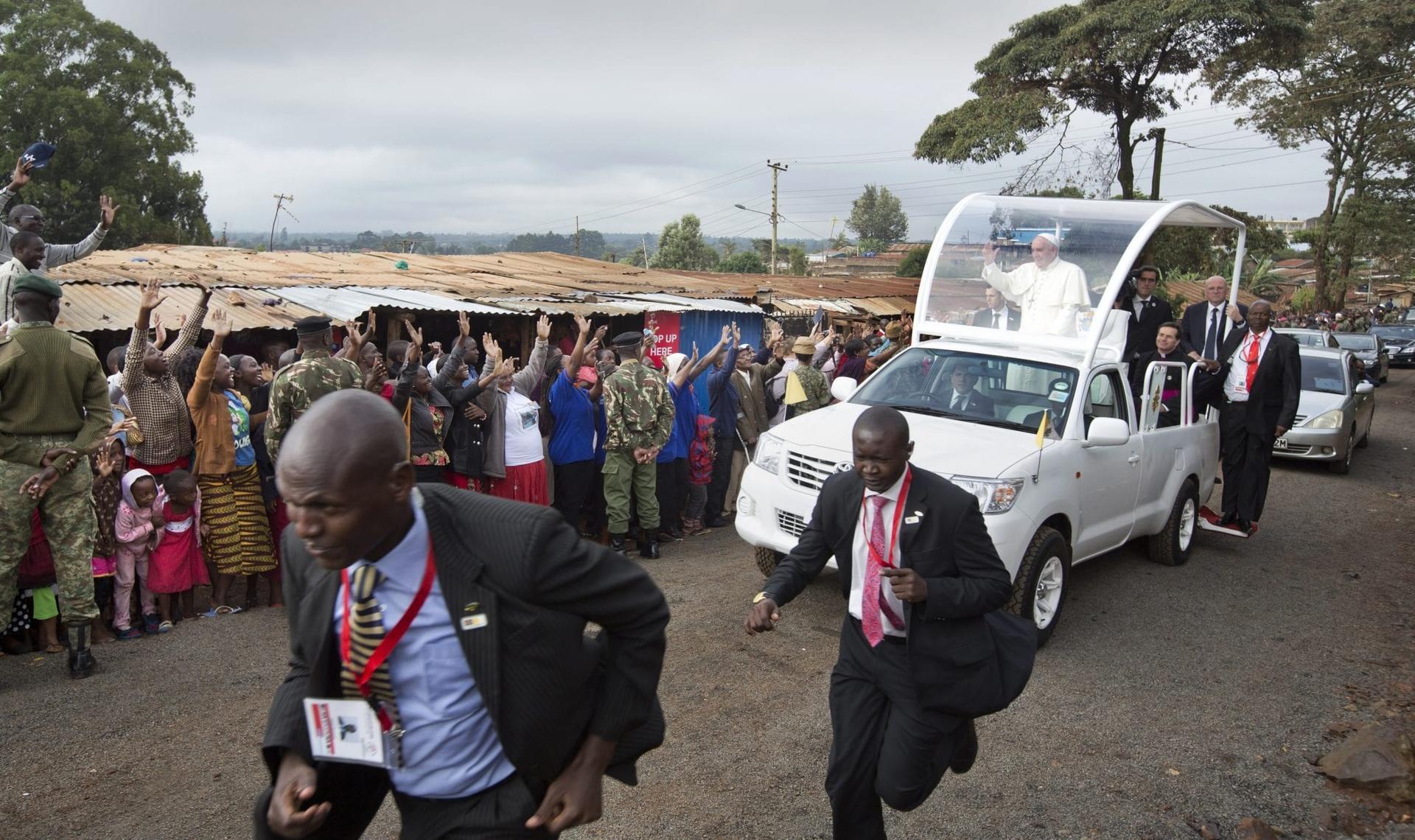NAIROBI – Pope Francis urged African youth Friday to fight the temptation of corruption, saying that, like sugar, it’s easy to acquire a taste for it but ultimately it is bad for one’s health, and he even acknowledged the Vatican isn’t immune to it.
Resisting the lure of corruption, he said, is a daily endeavor that has to be maintained regardless of what others are doing.
“If you don’t start, your neighbor won’t either,” Francis said on his last day in Kenya before travelling to nearby Uganda.
Speaking off-the-cuff to 30,000 young people gathered in Nairobi’s Kasarani stadium, Francis said corruption is not only present in politics but almost everywhere, including the institution he leads.
“Even in the Vatican there are cases of corruption,” he said.
In recent weeks, two new books have revealed cases of mismanagement and waste in Vatican finances, based on leaked documents from a papal study commission established by Francis to lay the groundwork for a sweeping reform.
On Monday, a Vatican criminal trial will resume for five people charged with illicitly publishing those documents, including the two Italian journalists who used them in their books.
Francis’ comments against corruption came in response to a question from two young Kenyans, reflecting the concern with the issue here and in many African nations. Kenya ranks a dismal 145 out of 174 countries in the Transparency International 2014 index, and recently the country’s president was forced to fire several cabinet ministers on corruption charges.
“Corruption is something that gets inside of us, it’s like sugar,” Francis said. “But it ends badly. When we have too much sugar, we end up with diabetes, or our country ends up being diabetic.”
“Every time we accept a bribe and we put it in our pocket, we destroy our hearts, our personalities, and our country,” he said.
The pontiff then directly addressed those engaged in corruption, though he did not mention anyone by name.
The money they steal, he said, won’t follow them to the grave, adding that after they’re gone, all that is left are “the hearts wounded by these examples” as well as starving children who have no food because it was stolen.
“Corruption is a path to death,” Francis said.
Francis also took up the subject of tribalism, another keen worry in a country where tribal violence in 2007 produced a spasm of violence many regarded as a civil war. The pontiff said the divisions could only be overcome by remembering, “we are all part of one nation.”
The pope also spoke about extremist groups trying to enlist young people, saying that the first thing to do is to pray for those at risk, whom, he said, are primarily unemployed and who lack access to education.
“God is much stronger than any recruitment campaign!” Francis said, drawing cheers from the stadium.
“There are two ways of looking at difficulties,” Francis told the young people. “It’s something that blocks [your growth], destroys or stops you, or it’s an opportunity.”
Earlier in the morning Pope Francis visited the Kangemi slum, one of 11 in Nairobi. More than 100,000 people live in shacks without sewerage in Kenya’s capital city.
“I feel very much at home sharing these moments with brothers and sisters who, and I am not ashamed to say this, have a special place in my life and my decisions,” Francis told the slum-dwellers.
Francis said that much of the misery in Africa’s poorest regions is the consequence of “new forms of colonization,” a deviation from an expression he often uses, “ideological colonization.”
After listing the realities of the slums, such as unsustainable urbanization, lack of drinkable water and electricity, criminal organizations that use the young as “cannon fodder,” Francis said these are not “a random combination of unrelated problems.”
“They are the consequences of new forms of colonialism, which would make African countries part of a machine, cogs in a gigantic wheel,” he said.
The pontiff complained that countries on this continent are pressured to adopt policies typical of a culture of waste, “like those aimed at lowering the birth rate.”
According to Kenyan Bishop Anthony Muheria, ideological and economic colonization is a continent-wide problem.
“We find ourselves, through our governments, constrained to accept ideologies that are neither African nor fully human in order to receive assistance even in basic needs,” he told Crux.
“Aid comes with string attached,” Muheria said.
Ideological colonization was a major complaint of African prelates during a recent Synod of Bishops held in October at the Vatican.
In the slum, Francis highlighted the “wisdom found in poor neighborhoods.” This wisdom, he said, is born of the “stubborn resistance” to uphold Gospel values apparently forgotten by opulent societies, “anaesthetized by unbridled consumption.”
Francis travels to Uganda Friday and rounds out his Africa visit with a stop in the Central African Republic Sunday and Monday.














